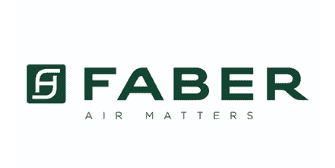Investing in a dishwasher is the smartest solution to handle the most challenging and time-consuming task of the kitchen – cleaning and drying vessels.
Recent dishwasher models have been specially designed to suit the requirements of Indian style of cooking. Some of the latest ones are even equipped with smart features like Wi-Fi connectivity.
If you want to invest in a dishwasher, then make sure to take a look at the ultimate guide mentioned in this article. Here, we have gathered all the information necessary to analyze among the various models and choose the best dishwasher as per your budget and requirements.
4 Key Points to Know For Choosing The Perfect dishwasher
Factor 1. Family Size vs Dish washer Capacity
While purchasing a dishwasher, capacity is the foremost factor to consider.
Dishwashers in India are available in different capacities that include 8 places, 12 places, 14 places and 16 places. As per AHAM, one place setting can hold a small saucer, one large plate, snack plate, a mug, two forks and two teaspoons.
An ideal capacity is usually calculated based on your family size or number of members or eating habits. Below, we have provided a brief explanation of standard recommendations.

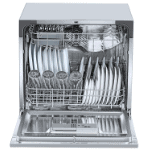

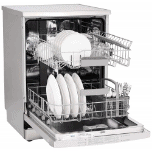

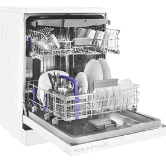
Note: Remember if you have to clean large utensils like kadai on a regular basis, then invest in a higher dishwasher size, even if you have a small family.
Factor 2. Which dishwasher type should you consider
Dishwashers are categorized into two types: Tabletop and free-standing. The ideal option between them depends on whether you own the house or live in a rented one. To help you more, we have provided a clear description of each type below for your reference.
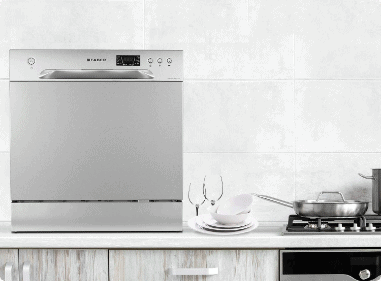
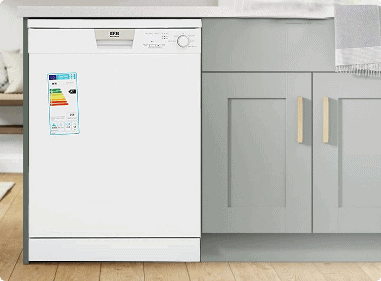
Factor 3. What wash programs to look for?
In recent times, these machines have also got some upgrades in terms of wash programs. Below are some of the wash cycle programs you can see in modern dishwashers. It is better to have some of these in-built wash programs for precise cleaning.
Factor 4. Other Features which you should consider
The below-mentioned factors represent how to analyze the functionalities of a gas stove.
1. Inbuilt Heater
It helps the dishwasher with hot water. Using high temperature water (above 70 ° C) will help to remove 99.9% germs compared to using normal or cold water.
2. Kitchen Fit
Dishwashers are available in different sizes and shapes. So, before making the purchase check the available empty space and choose the size or shape accordingly.
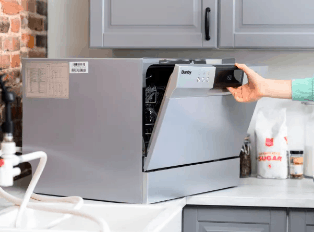
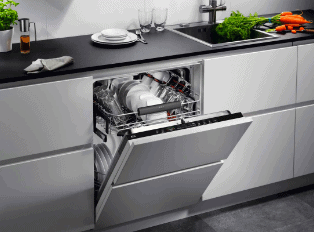
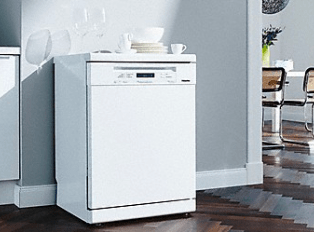
3. Made for Indian Kitchen
Some dishwashers are specially designed to accommodate different Indian cooking utensils like kadais, tawa, pots and others without disturbing the spoons and glasses space. And they are also specifically developed to deal with tough grease, masala and black stains that are common in Indian food and kitchen. It is better to choose a model with such specialty for optimal cleaning performance.
4. Water & Power Efficiency
Also, some Dishwashers come with eco wash program which saves on energy consumption & water. Your dishes are soaped longer while minimising the amount of water required.
5. Noise
Average sound levels produced by a dishwasher are provided in terms of decibels. If you don’t like noises, then choose a model with lower noise levels (less than 50 decibels). Dishwashers that produce more than 50 decibels of power are considered noisy and loud.
6. Delay Start & Auto Restart
With these features, you can let the dishwasher work around your schedule. With the delay start feature, you can start the dishwasher late at a certain time. Auto-restart is helpful when your locality has frequent power cuts. After power comes back, the dishwasher will automatically restart without manual intervention.
7. Child Lock
This feature is helpful if you are naughty kids at home. This prevents the dishwasher door from opening or closing the dishwasher while working.
8. Compatibility with Hard Water
Hard water often leaves stains on the utensils and take more time to rinse of the soap. To prevent such things, some dishwashers are designed to be hardwater compatible. If your home has a hard water supply, then make sure the model you choose has this feature. This feature will convert hard water to soft water before rinsing the utensils.
9. Control Panel
Control panel provides ease of operation and aesthetic appearance to the dishwasher. Most of the models have either a button or touch panel. When it comes to price, touch panels are more expensive than button panels. You can choose anyone among them based on your preference.
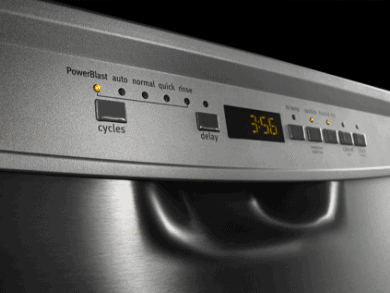
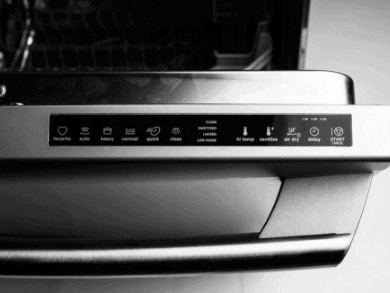
10. Brand Trust Worthy & Warranty
Brand value and warranty provide insights on how durable the dishwasher is. And moreover, purchasing from a popular brand ensures good customer service as well. When it comes to warranty, dishwashers come with 1-, 2- or 5-years warranty. It is better to invest in a model with higher warranty duration.
Some Best Brands in india to choose from






